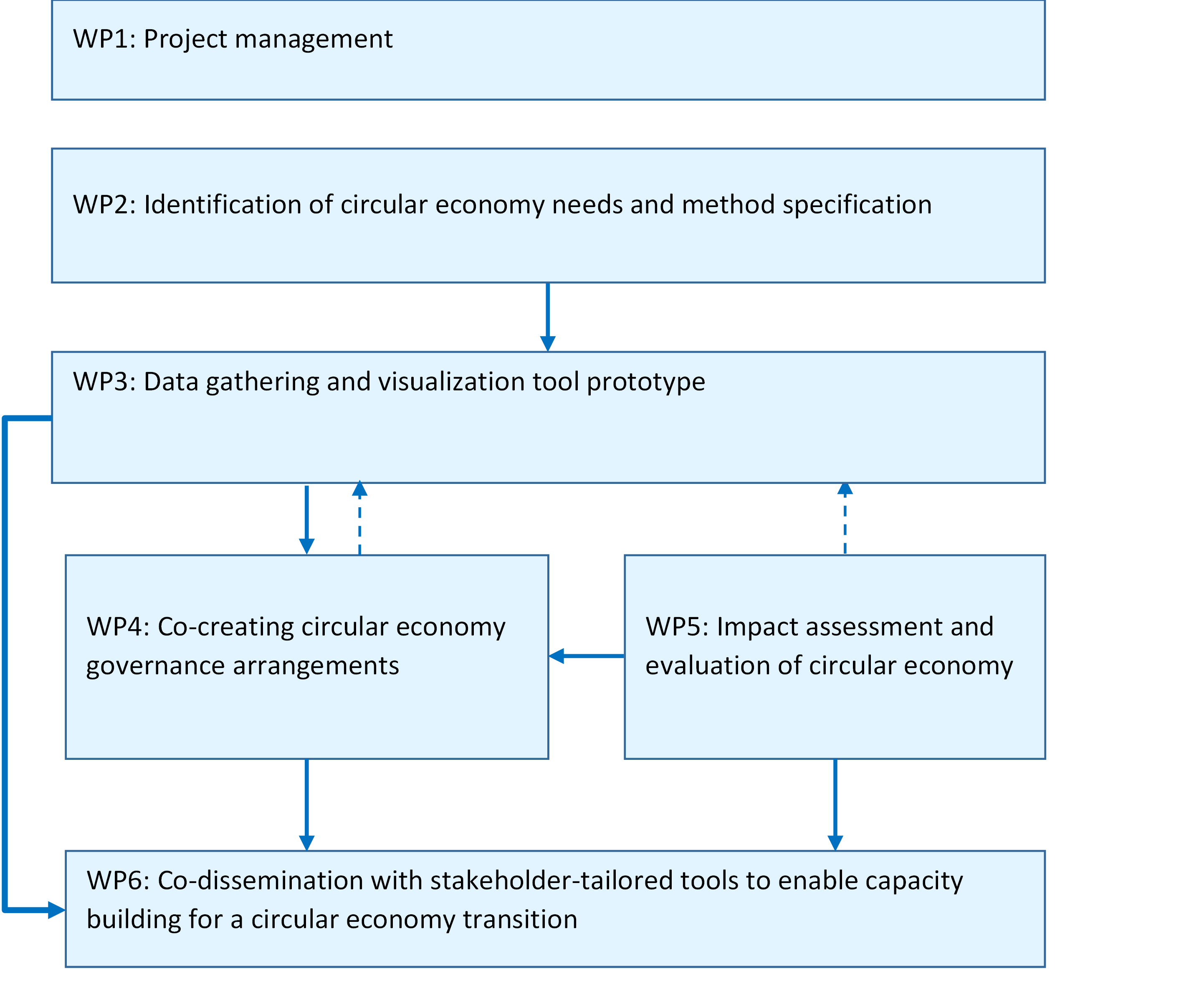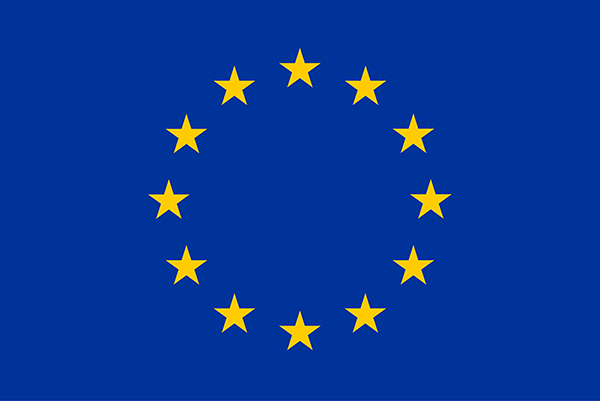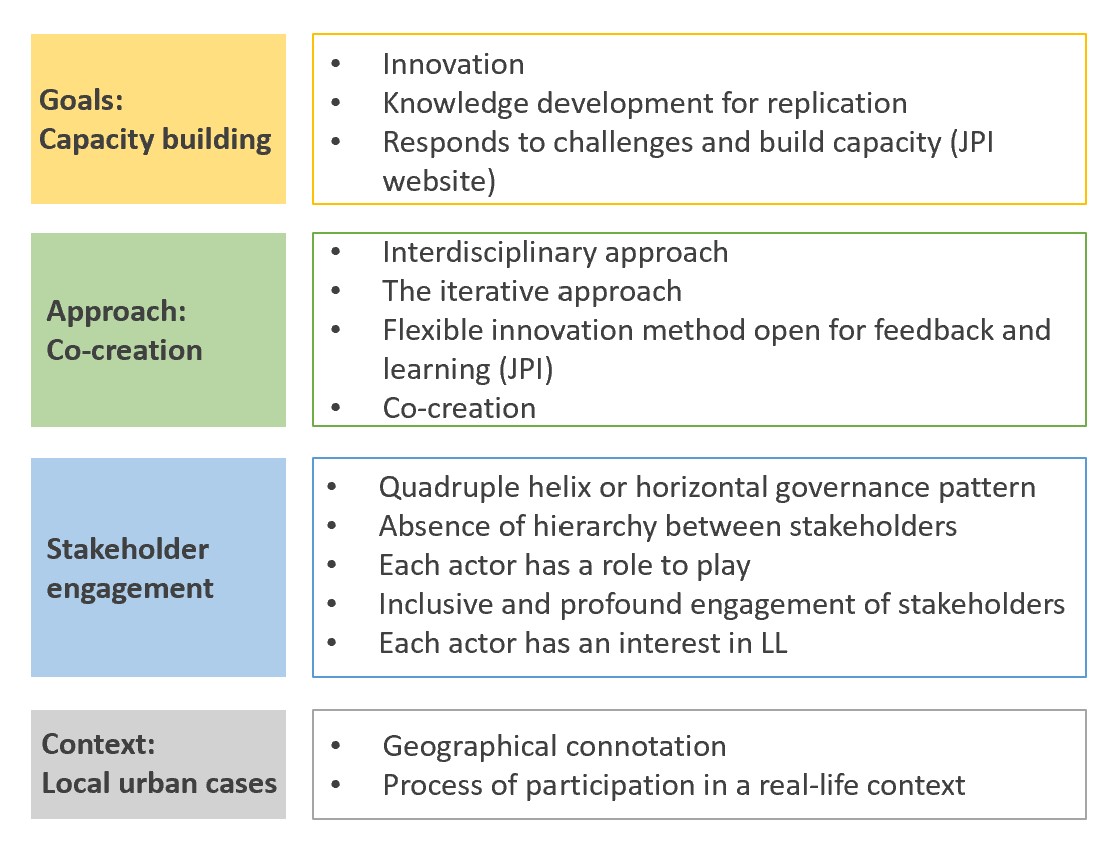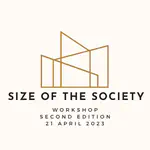CREATE
Embedding advanced urban material stock methods within governance processes to enable circular economy and cities resilience

Home/General
About Create
 CREATE project aims at supporting urban transformation processes towards the circular economy by making an inventory of the existing material stocks within urban construction, developing reliable scenarios for future expected material flows, and providing governance arrangements on how to approach the circular economy transition. The project will focus on the largest urban infrastructures and communal assets, namely buildings, municipal roads, water, and wastewater pipes. A truly transdisciplinary consortium will work with a mixed research design that integrates quantitative modelling with qualitative study and design of governance aspects. The project will further improve already existing, validated, and applied tools and arrangements and combine them with new digitalization technologies to inform decision-makers and enable a circular built environment.
This will be achieved by engaging with a wide range of stakeholders in a co-creation process with three urban living labs and six fellow cities in five countries, which will result in numerous capacity building moments throughout the entire project. A thorough analysis of best practices of cities steering the circular economy transition together with new governance interventions will result in concrete proposals of tailored governance arrangements for the participating cities including a concrete proposal for an upscaling strategy for Europe.
CREATE project aims at supporting urban transformation processes towards the circular economy by making an inventory of the existing material stocks within urban construction, developing reliable scenarios for future expected material flows, and providing governance arrangements on how to approach the circular economy transition. The project will focus on the largest urban infrastructures and communal assets, namely buildings, municipal roads, water, and wastewater pipes. A truly transdisciplinary consortium will work with a mixed research design that integrates quantitative modelling with qualitative study and design of governance aspects. The project will further improve already existing, validated, and applied tools and arrangements and combine them with new digitalization technologies to inform decision-makers and enable a circular built environment.
This will be achieved by engaging with a wide range of stakeholders in a co-creation process with three urban living labs and six fellow cities in five countries, which will result in numerous capacity building moments throughout the entire project. A thorough analysis of best practices of cities steering the circular economy transition together with new governance interventions will result in concrete proposals of tailored governance arrangements for the participating cities including a concrete proposal for an upscaling strategy for Europe.Work Package Structure
The CREATE project follows a set of strategic underpinnings that connect the different work packages in three dimensions:

Timeline

Funding program
 The CREATE project has received funding from the European Union’s Horizon 2020 research and innovation programme under grant agreement No 875022.
The CREATE project has received funding from the European Union’s Horizon 2020 research and innovation programme under grant agreement No 875022.Urban LivingLabs
About LivingLabs
JPI Urban Europe definition:
Key components:
There are 4 key components of a Living Lab.

Steps of LivingLabs
There are 2 phases with 6 steps respectively for a Living Lab, starting with a pre phase and following by a development phase

Case Studies
- Nijmegen in the Netherlands
- Gothenburg in Sweden
- Rennes Metropolitan area in France
- Vienna in Austria
Fellow cities
Partners
News
October 20-21, 2022 [[Physical CREATE project meeting in Gothenburg]](https://www.sb.chalmers.se/post/create-meeting-gbg/)
June 22-23, 2023 [Physical CREATE project meeting in Rennes]
June 06-07, 2024 - [Physical CREATE project meeting in Nijmegen]
Project results/ Deliverables
Overarching Goals
- Develop and visualize an overview of material stocks and flows that are part of the built environment,
- Provide tailored software solutions to cities that support a circular built environment, and
- Co-create governance arrangements that enable a broader participation of stakeholders, experimentation with decision-support information, and the upscaling of best practices.
Deliverables

